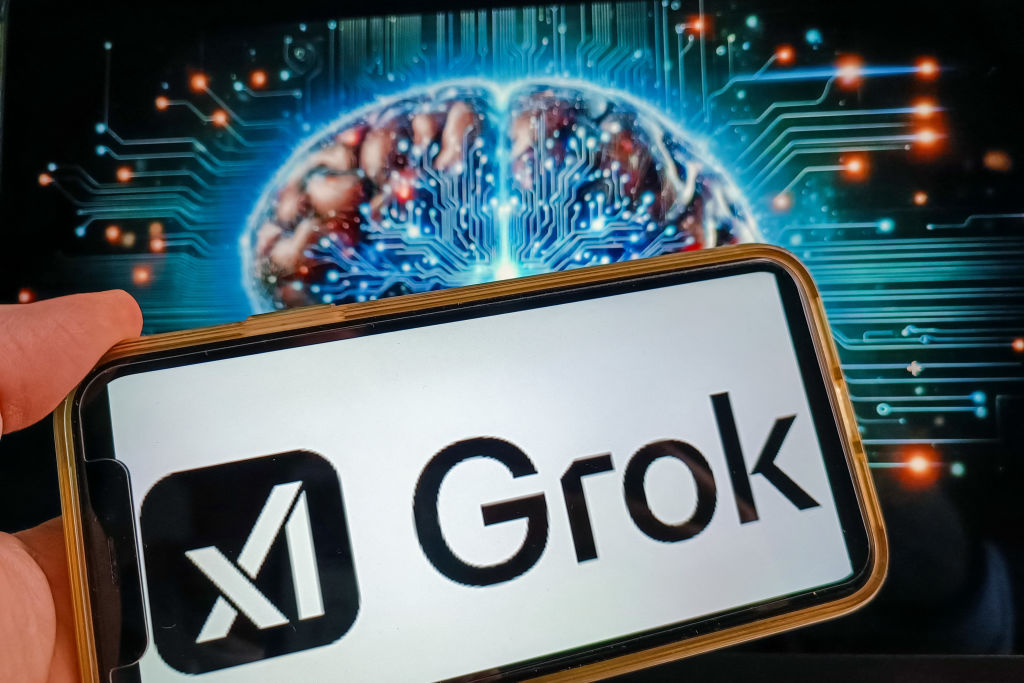So is artificial intelligence (AI) to be a new engine of growth for the British economy? That is Rishi Sunak’s hope. Ideally, he might have been using his trip to Washington to announce a trade deal between the UK and the US. Of course, that’s not going to happen: Joe Biden has made it clear that he doesn’t regard trade deals — with anyone — as a priority, not least because the crowning achievement of his administration so far, the Inflation Reduction Act, is a huge protectionist device dressed up as a fiscal and environmental measure. The British prime minister then seems to have decided that securing something on AI is the next best thing. Sunak will not leave the US empty-handed: it has been announced this morning that Britain will host a summit on AI safety in the fall — the first step, so Sunak hopes, to Britain becoming the home of a new organization dedicating to regulating AI globally.
But does AI really promise the riches that many claim it will be? In recent months, the British government has been touting a figure that AI is already worth £3.7 billion ($4.6 billion) to the UK economy. Hopes for AI were bolstered a couple of weeks ago when shares in Nvidia — which makes chips for AI systems — jumped in response to a boost in orders. The company’s shares are up nearly threefold since their nadir last September.
Will AI really transform our lives and the economy in the way that the internet did?
Given that the world seems to pass from one bubble to another nowadays, AI seems to be the obvious next big thing. It is certainly consuming vast column inches, and it should come as no surprise if paper fortunes are made — and lost — over coming years. It is very easy for enthusiasm to run ahead of the reality. That doesn’t necessarily mean, however, that the underlying presumption behind the bubble was wrong. The dotcom bubble did indeed herald a new age of the internet — just not quite at the speed which investors hope, and not involving all the players which they were backing.
But will AI really transform our lives and the economy in the way that the internet did? A warning about over-enthusiasm was sounded by the publication last December of a survey by McKinsey, involving 1,800 corporations around the world, each of which were asked to what extent they had invested in AI, and what were the results. The survey was remarkably downbeat. There was a big surge in businesses adopting AI in at least one of their business units between 2017, when 20 per cent of businesses said they had done so, to 2019, when 58 percent of businesses had done so. But since then, enthusiasm seems to have waned; in 2022, it had fallen back to 50 percent.
Why the limited enthusiasm? Because AI simply isn’t saving many businesses money. Across all activities, only 32 percent of businesses said costs had decreased as a result of the adoption of AI and 63 percent said their costs had increased. The most promising application was in supply chain management, but even then scarcely half of businesses said AI was saving them money. McKinsey concluded:
After a period of initial exuberance, we appear to have reached a plateau… We might be seeing the reality sinking in at some organizations of the level of organizational change it takes to successfully embed this technology.
On the positive side, McKinsey did also point out that it had identified a period of waning enthusiasm during the adoption of other technologies — and it didn’t prevent those technologies going on to enjoy widespread adoption. But while many people are worrying whether AI will steal our jobs or even finish off mankind, it is perfectly logical to wonder whether AI is all it is cracked up to be, or if Rishi Sunak’s enthusiasm for investing AI is a case of hype ruling over reality.
This article was originally published on The Spectator’s UK website.

























